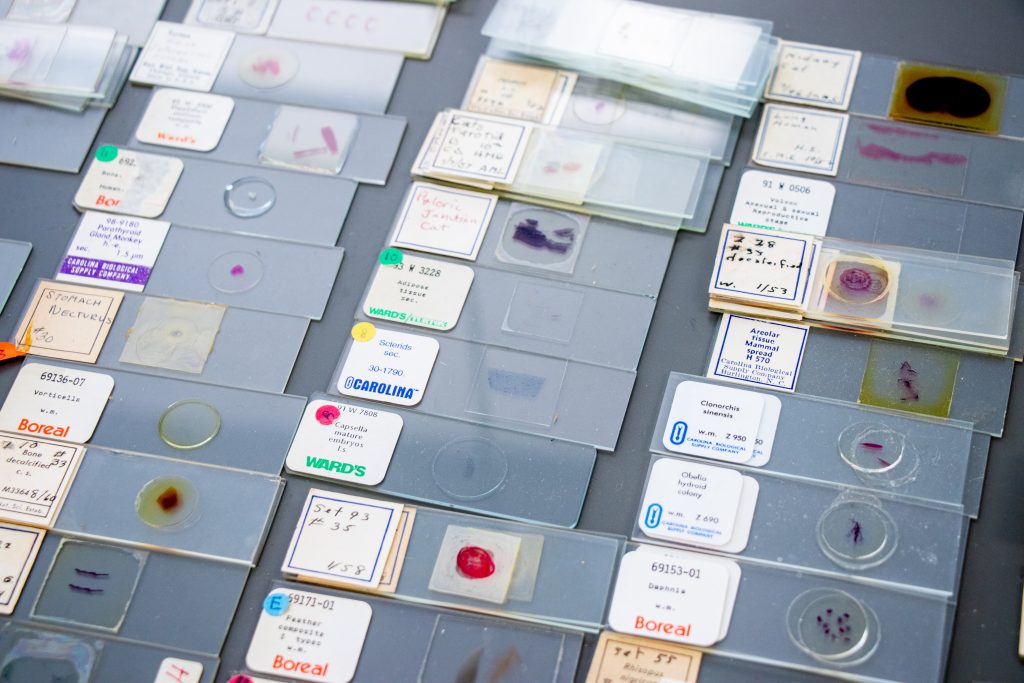Pre-pharmacy major DeJaNé Pile is carefully curating the university’s collection of histology samples – biological tissues from animals to plants – created in the early 1950s at then-Rosary Hill College.
Sisters of St. Francis who were on the faculty carefully prepared a wide array of samples from various organisms.

“These slides would not be made like this today,” said Pile. “The work they did is exquisite and we’re lucky to be able to learn from them.” (Today, samples are produced by two companies in China and are of a limited variety.)
A Rare & Valuable Resource
The samples are encased in glass slides and can be viewed under a microscope. Magnified examination gives students a deeper understanding of how tissues function, including human tissue.
“Having access to this vast variety of samples is a unique benefit for many of our students,” explained Diane Ramos, associate professor and chair of Daemen’s Natural Sciences Department.
Consulting with professors to identify and sort the samples, Pile aims to make the collection more easily accessible, as classes – including introductory biology, anatomy, and nursing anatomy – still use these high-quality samples in their labs today.
What makes them so special is that the Sisters used chemical treatments, such as chromium, to make tissue components easier to view. These chemicals are no longer employed to create contemporary samples due to health risks.
Still, the slides are safe for Pile and other students to handle.
“This project has allowed me to gain valuable experience working in a lab,” said Pile, “and now I know that is something I want to continue to do in my career.”















